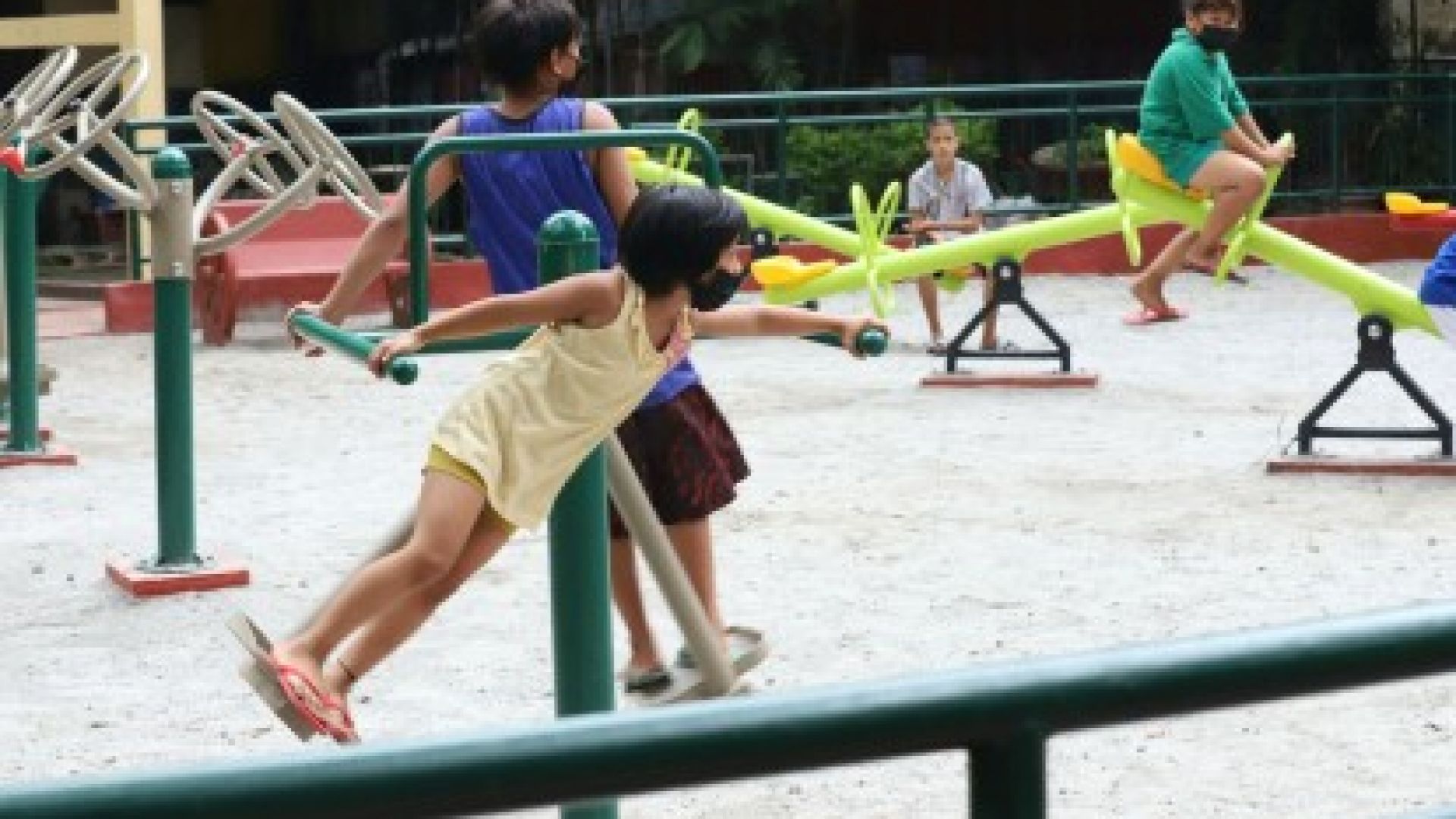The dosage of Pfizer BioNTech (Pfizer) Covid-19 vaccine given to children aged five years to 11 years is different from those given to 12- to 17-year-olds and adults, a Department of Health (DOH) official said Friday.
“Kahit parehong Pfizer po ang brand na binibigay sa mga 12 to 17 years old at five to 11 years old, magkaiba po ang formula ng bakuna sa kanila (Even though the same Pfizer vaccine is given to children aged 12 years to 17 years and those aged five years to 11 years, the vaccine formula is different),” DOH Undersecretary Maria Rosario Vergeire said during a media briefing in Malacañang.
Vergeire noted that only Pfizer has received an emergency use authorization (EUA) for five- to 11-year-olds, while those aged 12 to 17 may be vaccinated with Pfizer and Moderna vaccines.
She said the different Pfizer doses have color-coded bottle caps to ensure that individuals are given the right dosage.
Based on a study from the United States, the Covid-19 vaccine for five- to 11-year-olds has an efficacy rate of 91 percent, with no known serious side effects.
“Gaya po ng pagbabakuna sa nakakatanda, maaari pong makaramdam ang ating mga kabataan ng pananakit o pamumula ng injection site, pagkapagod o fatigue, o pananakit ng ulo (Like adults, these children may feel pain or redness in the injection site, fatigue, or headaches when administered the vaccine),” Vergeire said.
She said these symptoms are expected to be gone after two to three days and maybe alleviated by ensuring the children are well-hydrated or given paracetamol.
“Bihira lamang ang malalang side effect dahil sa Covid-19 vaccine, at kung meron man, ay gumagaling din po ang mga kabataang nakaranas nito (Serious side effects due to Covid-19 vaccines are rare and if there are any, the children who experience them eventually recover),” Vergeire said.
Citing the Philippine Pediatric Society and the Pediatric Infectious Diseases Society of the Philippines, she said children have been found to have more minor Covid-19 symptoms but still get infected and may still be hospitalized or admitted into intensive care unit (ICU).
“Para naman po sa mga kabataang may karamdaman o co-morbidities, mas mataas po o 1.8x ang risk na sila po ay tamaan ng malubhang Covid-19 na maaaring mangailangan ng intensive care, habang 2.8x naman po ang risk na maaaring sanhi ng pagkamatay dahil po sa pagkakahawa sa virus (For children with co-morbidities, there is 1.8x risk of being infected with severe Covid-19 that may result in intensive care, while there is 2.8x risk that they may die after contracting the virus),” Vergeire said.
On Wednesday, National Task Force Against Covid-19 chief implementer Secretary Carlito Galvez Jr., announced that Covid-19 vaccinations for minors aged five to 11 years will begin on February 4.
The rollout of vaccines for the age bracket, he said, will begin in a hospital-based vaccination site and another operated by a local government unit within the National Capital Region until it is expanded to the rest of Metro Manila and other regions on its second week. (PNA)













